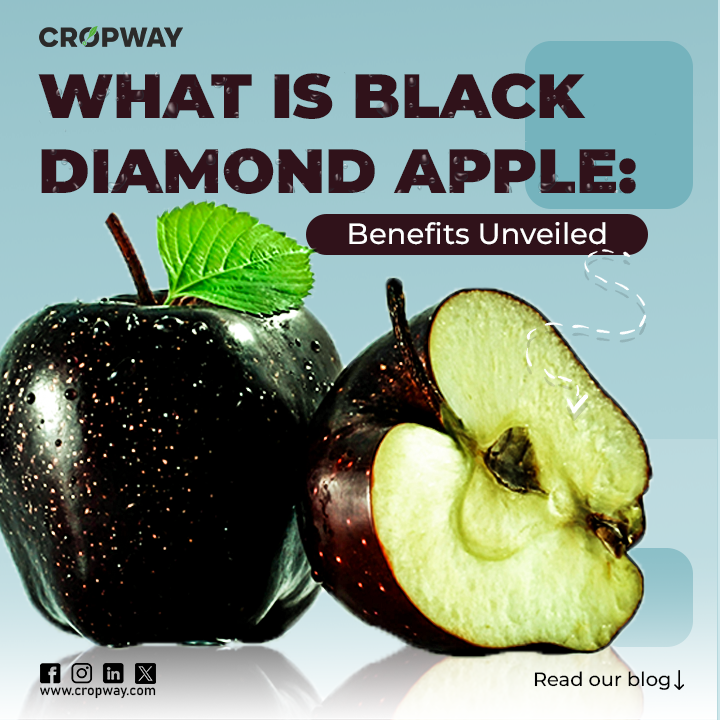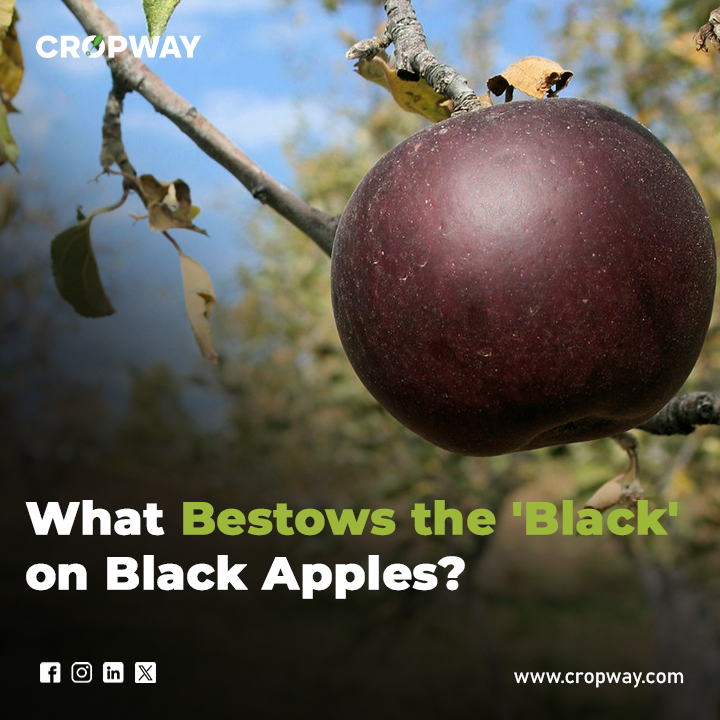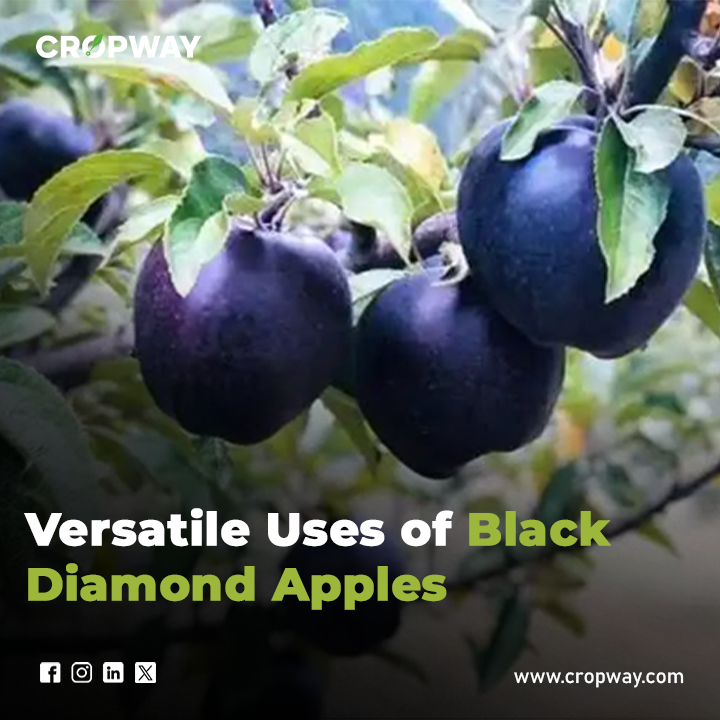
Introduction
Amidst the rich array of fruits crafted by nature’s hand, a truly exceptional marvel emerges—the Black Diamond Apple hails from the lofty terrains of Nyingchi in Tibet. Its resplendent, jewel-like facade and delightful blend of crisp sweetness and tartness have ensnared the fascination of fruit aficionados globally. Let us embark on an exploration to uncover the secrets behind this extraordinary and scarce fruit.
What Bestows the ‘Black’ on Black Apples?

The Black Apples owe their distinctive dark color to the specific geographical location and climate of Nyingchi, a small Himalayan city in Tibet, where they are cultivated. Experts attribute the rich, dark hue of the fruit’s skin to the region’s unique combination of nightly temperature fluctuations and intense daytime ultraviolet exposure. While the outer skin darkens due to these environmental factors, the interior of the apple maintains its usual brilliant white color, making for a striking contrast.
Could the darker skin hold more nutrients?

Despite their delightful taste, Black Diamond apples are not notably more nutritious than other common apple varieties. Typically, an average apple contains around 4 to 5 grams of fiber, approximately 100 calories, and a flavonoid called epicatechin, known for its heart-healthy benefits and blood pressure regulation. Apples, in general, offer anti-inflammatory properties and are nutritionally rewarding. However, these specific advantages aren’t unique to Black Diamond apples. One notable difference in contrast to regular apple trees, which typically mature in just two to three years, is that the black diamond apple demands a considerable amount of patience. It undergoes a prolonged 8-year maturation process, further complicated by the challenging terrain of the steep mountains where it flourishes.
Versatile Uses of Black Diamond Apples:
While these apples may not offer extra nutritional benefits compared to their brighter counterparts, their scarcity makes them considerably more expensive. Available only for a few months each year, Black Diamond apples have a very limited production window. Some notable benefits of black diamond apples, like other apples, are:

- Digestive Health Support: They are just as rich in fiber and have a high pectin content, hence, this fruit aids in maintaining bowel regularity by promoting beneficial gut bacteria.
- Disease Resistant: The peels of apples are loaded with anti-inflammatory and antioxidant compounds, including quercetin, catechin, phloridzin, and chlorogenic acid, all of which are strong antioxidants. These compounds, reduce the risks associated with conditions like some cancers, cardiovascular disease, asthma, and diabetes.
- Skin Nourishment: Packed with Vitamin C and antioxidants, the fruit enhances blood circulation, fights acne, and addresses skin conditions such as eczema and psoriasis. Additionally, its bark serves as an antiseptic for skin infections.
- Weight Management: High water content contributes to a sense of fullness, curbing excessive eating, and supporting weight loss efforts.
- Vision Health: A rich source of vitamin A, Black Diamond Apples safeguards eye health and prevent age-related vision problems like macular degeneration and cataracts.
- EasesInflammation: Like all apples, Black Diamond Apples also contain essential nutrients like riboflavin, iron, and Vitamin B12 that facilitate red blood cell formation, heal damaged tissue, and promote overall tissue health.
- Heart Health: Soluble fiber and polyphenol antioxidants in these apples prevent arterial build-up, fostering healthy blood circulation, and reducing heart disease risks.
Challenges in Cultivating Black Diamond Apples:
The journey from seed to harvest for Black Diamond Apples is lengthy, taking about eight years compared to the shorter growth period of regular apples. Cultivation faces challenges due to steep mountain slopes, making large-scale farming challenging. The harvesting window is brief, lasting only two months around October, and rigorous quality checks mean that approximately 30% of the apples meet market standards.
In summary, the Black Diamond Apple is a testament to the intricate balance between nature’s enigma and human determination. Its rarity, stunning appearance, and exceptional sweetness make it a highly sought-after fruit, adding a sense of allure to the culinary world. As aficionados pursue this distinctive fruit, the Black Diamond Apple remains a symbol of the delicate collaboration between nature’s marvels and the dedication of those who nurture its harvest.
Conclusion:
The Black Diamond apple stands out as a unique fruit, enchanting those fortunate enough to savor its distinctive taste. Although part of the premium market segment, the typical Black Diamond Apple is available in upscale grocery stores, retailing at around 50 yuan or Rs. 500 (approximately 7.75 USD). The cultivation of this fruit faces resistance from many farmers due to the extended maturation period of up to eight years and the short growing season, lasting only about two months.
Additionally, there is limited incentive for cultivation, as Black Diamond apples likely do not offer superior nutritional value compared to other commercially available apple varieties. Yet, its captivating dark appearance, intricate flavors, and scarcity have solidified its status as a precious apple variant. Whether you’re a fruit connoisseur, a culinary adventurer, or someone who values life’s finer pleasures, encountering the Black Diamond apple is an opportunity not to be overlooked.







